Hey there! We understand that delays can be frustrating, especially when it comes to important projects. We truly appreciate your patience and want to extend our sincerest apologies for the delay in completion. To dive into the details of what led to this setback and how we're addressing it moving forward, we invite you to read more below.

Acknowledge the Delay
Project delays can significantly impact project timelines and client expectations. Unforeseen circumstances, such as resource shortages or technical issues, often contribute to these delays. Effective communication regarding the project status is crucial for maintaining client trust and satisfaction. Providing a detailed explanation of the reasons for the delay, along with an updated timeline, reassures clients about commitment to quality and delivery. Transparency fosters positive relationships and allows for collaborative solutions to address any concerns stemming from the delay.
Provide Reason for Delay
Delays in project completion can often be attributed to unforeseen circumstances, such as supply chain disruptions or unexpected technical challenges. For instance, in a construction project located in Seattle, an unexpected shortage of steel caused a holdup, extending the timeline by two months. Similarly, software development projects may face integration issues or bugs that require additional debugging efforts, resulting in prolonged delivery schedules. Internal factors, like staff turnover or changes in project scope, can also contribute to project delays, necessitating adjustments to timelines and resource allocation to ensure quality outcomes. It is crucial to communicate these reasons clearly to stakeholders to maintain trust and transparency in project management.
Express Sincere Apology
Delays in project completion can significantly impact schedules and expectations, especially in fields like construction or software development. Reasons for these delays may include unforeseen circumstances, such as equipment failure, or resource shortages, affecting project timelines. A sincere apology should acknowledge the inconvenience caused, outline the challenges faced, and express commitment to rectifying the situation. Maintaining transparent communication with stakeholders, which can include clients, team members, and suppliers, is crucial for rebuilding trust and ensuring future collaboration. Additionally, outlining steps taken to expedite progress may help reassure all parties involved that the project remains a priority.
Assure Completion Timeline
Delay in project completion can significantly impact clients and stakeholders, especially in industries like construction or software development. Recognizing this, a comprehensive communication approach is essential. Current project timelines may have shifted due to unexpected challenges, including resource shortages or unforeseen technical issues. It is crucial to acknowledge the delay, ensuring transparency regarding the reasons behind it. Commit to a new completion timeline, specifying dates and milestones to rebuild trust. For instance, if the initial deadline was set for March 2023, communicate that the revised completion date is now June 2023, emphasizing the measures taken to prevent future delays. Regular updates and progress reports can further reassure clients of the project's status and reinforce the commitment to quality and timeliness.
Offer Compensation or Solutions
Delays in project completion can frustrate stakeholders, impacting schedules and budgets. Factors such as unforeseen circumstances (like supply chain disruptions or unexpected technical challenges) often contribute to this timeline shift. Proposing compensation, such as financial rebates or added services, can enhance relationship management and mitigate dissatisfaction. Effective solutions might include increased staffing or prioritizing tasks, ensuring timely progress. Clear communication about timelines and milestones will maintain transparency and trust. Building in contingency plans for future projects can also prevent similar issues, safeguarding overall project integrity.

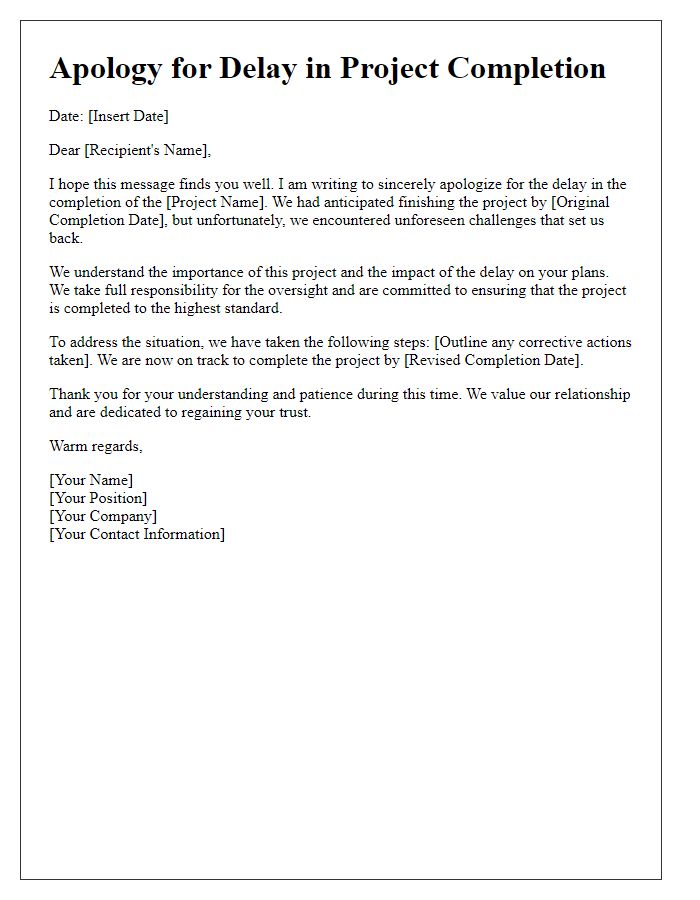
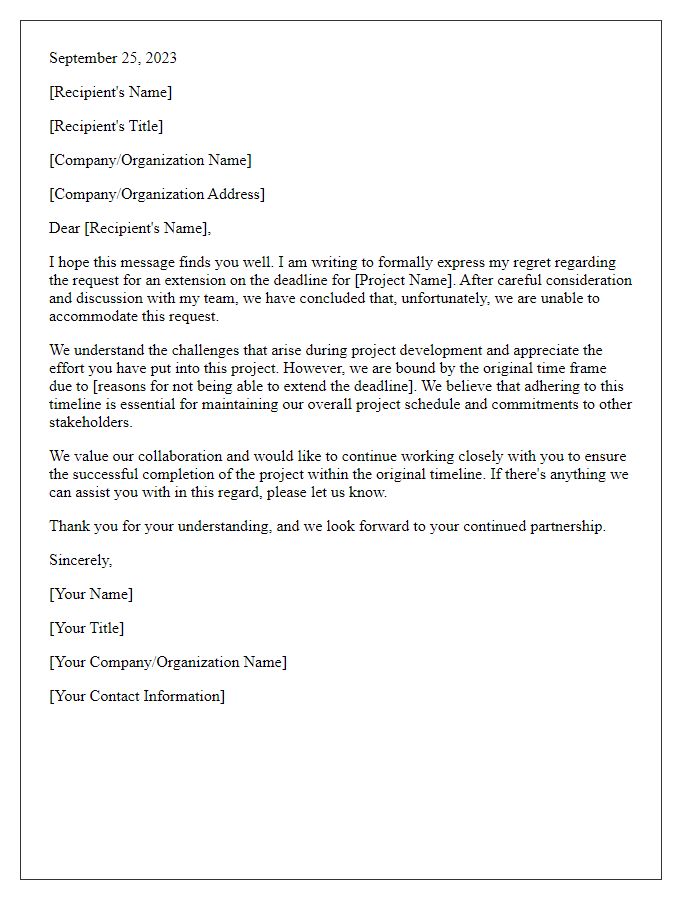
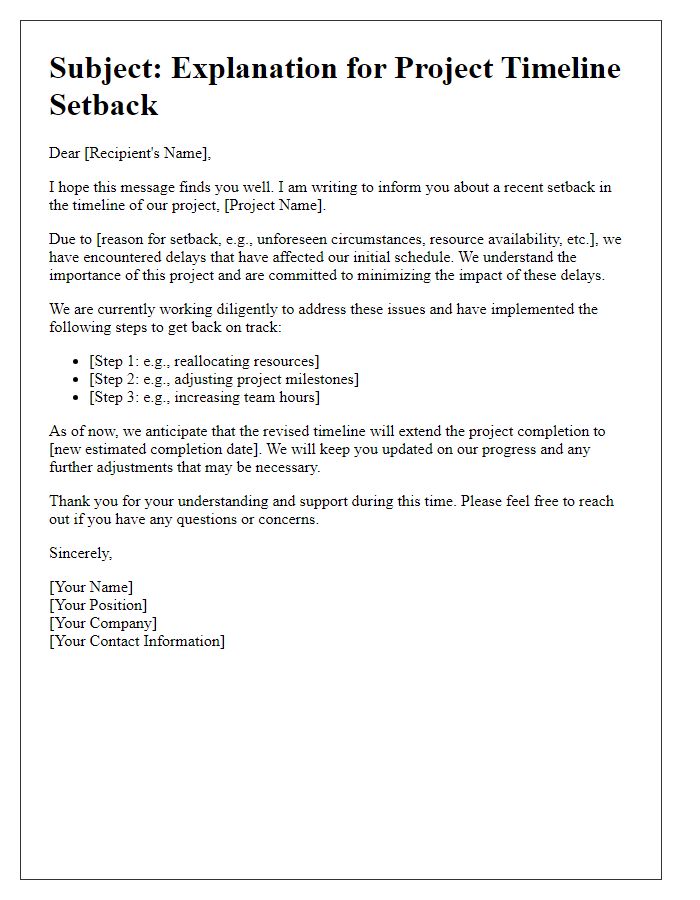
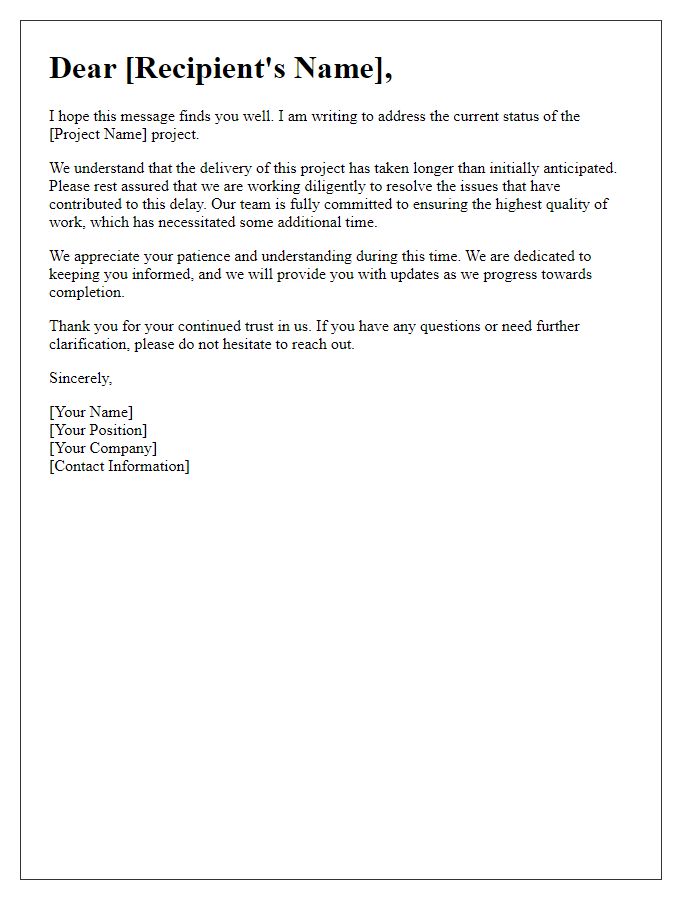
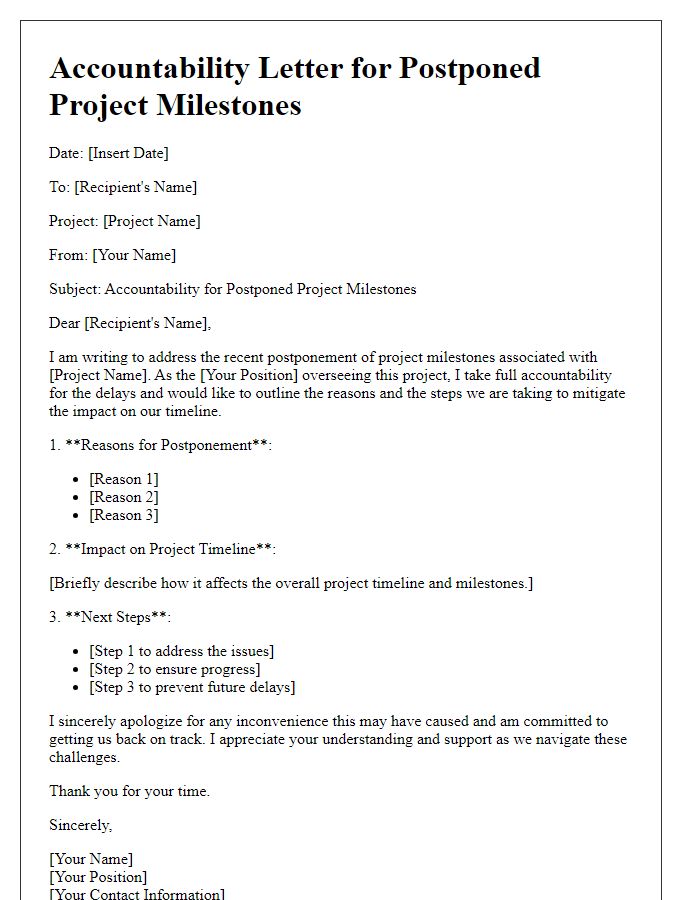
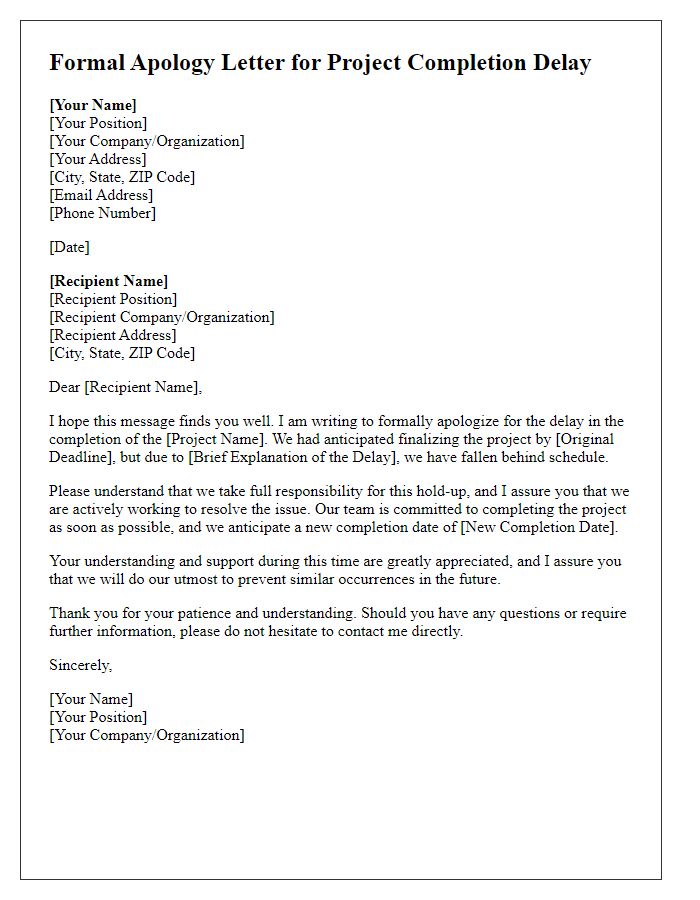
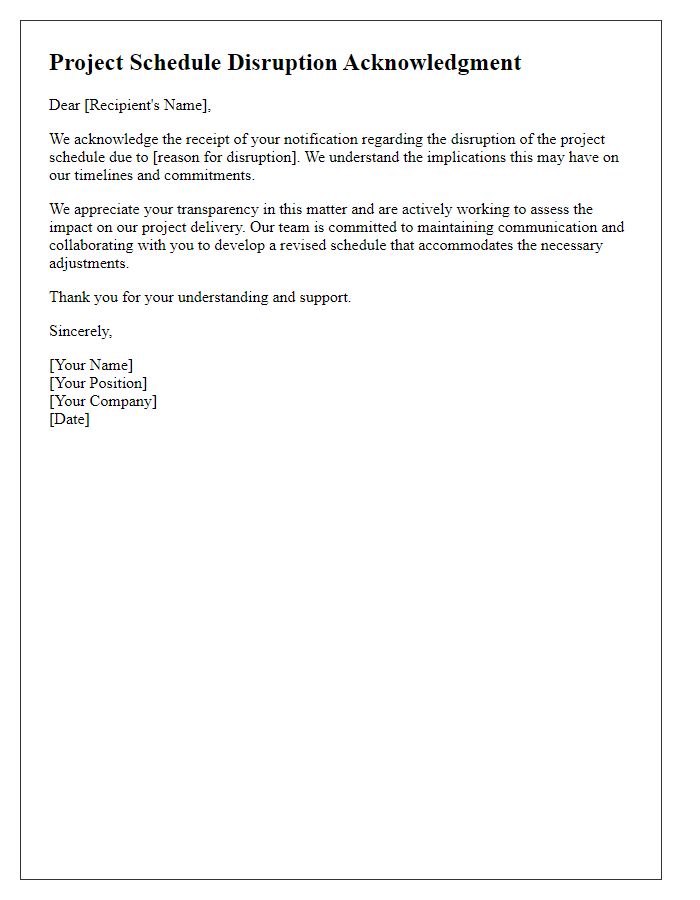
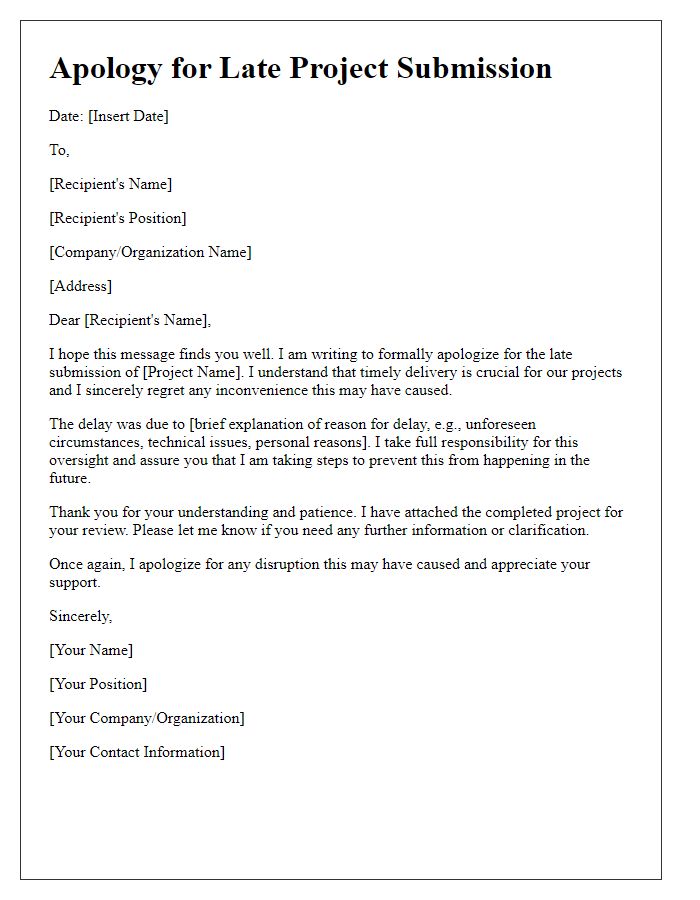
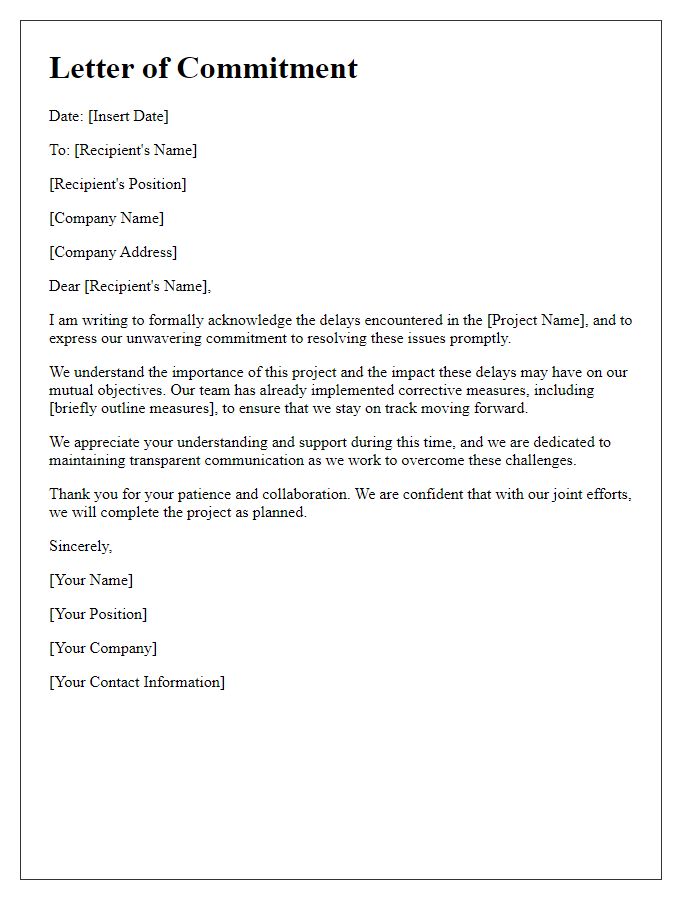
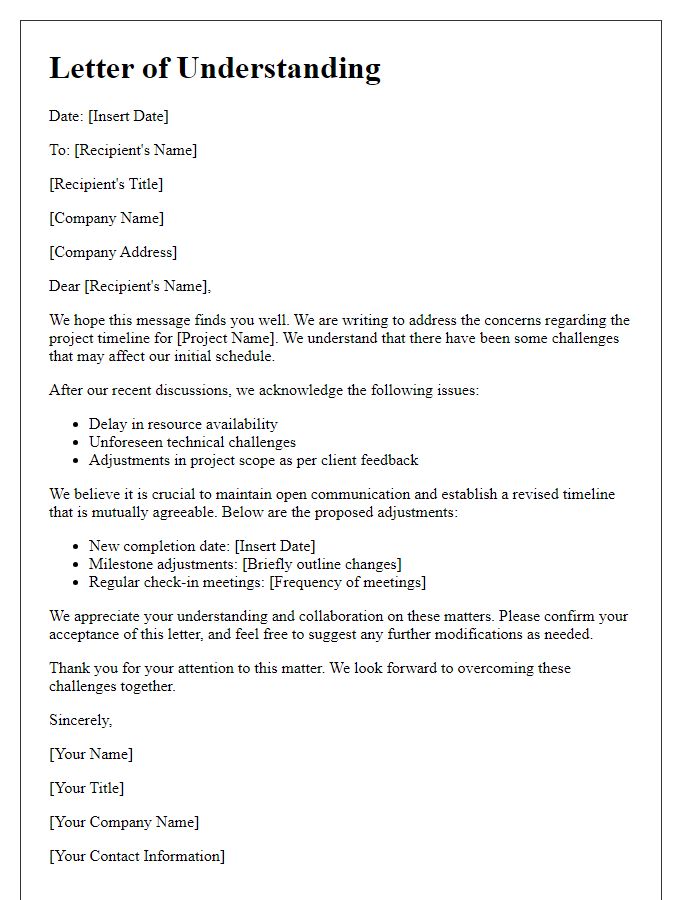


Comments